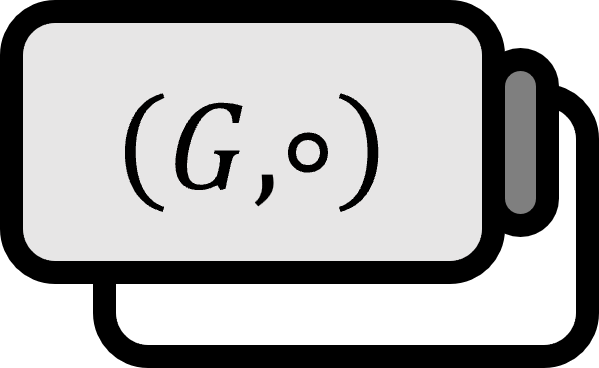What is a commutator in field theory?
Definition
For a ring $(R, +, \cdot)$, the commutator of two elements $a, b \in R$ is defined as follows.
$$ [a, b] := a \cdot b - b \cdot a = ab - ba $$
If $[a, b] = 0$, then $a, b$ are said to commute. The anticommutator of $a, b$ is defined as follows.
$$ \left\{a, b\right\} = ab + ba $$
Explanation
While similar to the commutator in group theory, it is slightly different in a ring since the law of commutation already applies to addition $+$, so it indicates whether it is commutable for multiplication $\cdot$.
Equivalent to the commutator in quantum mechanics, Lie bracket of vector fields in differential geometry.
$(2)$ is said to be anticommutativity. $(6)$ is called the Jacobi identity.
Properties
$$ \begin{align} [a, a] &= 0 \\[1em] [a, b] &= -[b, a] \\[1em] [a+b, c] &= [a, c] + [b, c] \\[1em] [ab, c] &= a[b, c]+[a, c]b \\[1em] [a,bc] &= b[a,c]+ [a,b]c \\[1em] [a, [b, c]] + [c, [a,b]] + [b, [c,a]] &= 0 \end{align} $$
Proof
(1)
$$ [a, a]=a-a=0 $$
■
(2)
$$ [a,b] = ab-ba = -(ba-ab) = -[b,a] $$
■
(3)
$$ \begin{align*} [a+b,c] =&\ (a+b)c-c(a+b) \\ =&\ ac+bc-ca-cb \\ =&\ (ac-ca) + (bc-cb) \\ =&\ [a,c]+[b,c] \end{align*} $$
■
(4)
$$ \begin{align*} [ab,c] =&\ (ab)c-c(ab) \\ =&\ abc-cab \\ =&\ (abc {\color{blue}-cab})+(acb {\color{red}-acb}) \\ =&\ (abc {\color{red}-acb}) + (acb {\color{blue}-cab}) \\ =&\ a(bc-cb) +(ac-ca)b \\ =&\ a[b,c] + [a,c]b \end{align*} $$
(5)
$$ \begin{align*} [a,bc] =&\ a(bc)-(bc)a \\ =&\ abc-bca \\ =&\ ({\color{blue}abc} -bca)+({\color{red}bac} -bac) \\ =&\ ( {\color{red}bac}-bca )+({\color{blue}abc}-bac) \\ =&\ b[a,c] + [a,b]c \end{align*} $$
■
